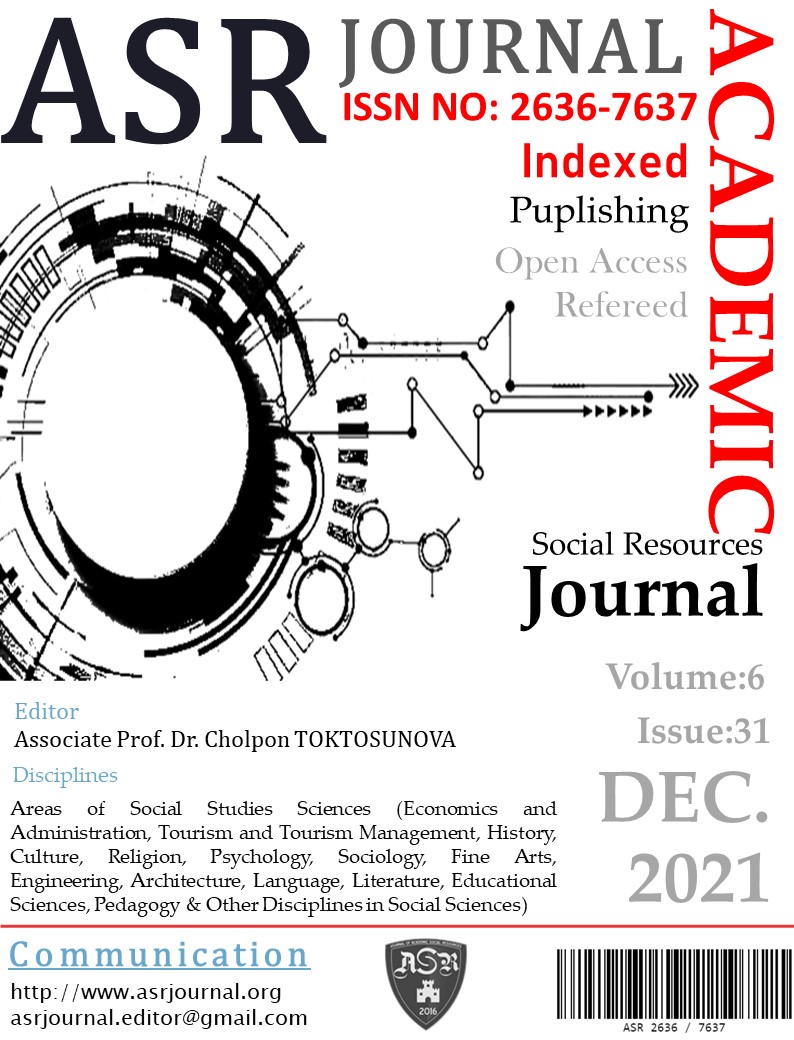EFFECTS OF MOTIVATION TO THE PERFORMANCE OF MANAGER-FOCUSED EMPLOYEES IN PUBLIC AND PRIVATE SECTOR ENTERPRISES AND A RESEARCH
Author :
Abstract
In the enterprises, the fact that the employees are motivated well depends on their managers and the employees’ performance. Employees’ performance is supported through theories but the targets can be achieved by action. In managing the enterprises which continue their existence for attaining certain aims, it is quite important for them to be motivated in achieving success and efficiency. Motivation is a necessity. Its existence makes the enterprise reach its targets. Its absence vanquishes the enterprise from the market. The aim of using motivation factors is to make the employees be successful in all activity areas. In our study, it was elaborated on the motivation and performance differences of public and private sector enterprises, and it was seen that the motivation variables employed by the managers in different sectors display different performances by the managers in different sectors. Because of that this concept which has gained importance today in all areas and sectors involves economic and organizational factors which differ as to the enterprises ad play a role in the development of enterprises, these factors were elaborated in our research. In the name of examining the motivation and its factors, it was conducted a comparative practice based on the public and private sectors, and when the statistical results based on the data is considered, it was concluded that there is a significant difference. Motivation variables in the public sector have differences from the private sector in terms of practice and perception. When an examination is applied by including authority and laws and regulations, the mandatory practices harden the application of motivation factors and even make them impossible. It was concluded from this difference that motivation factors emerge a bit more in the public sector, but it was faced with problems in using them on behalf of the employee in practice. In our research, the survey method was used, and our study was analyzed in Statistics Program SPSS 17.0 medium. It was conducted the evaluation of the tables, and it was brought forward conclusions and recommendations.
Keywords
Abstract
In the enterprises, the fact that the employees are motivated well depends on their managers and the employees’ performance. Employees’ performance is supported through theories but the targets can be achieved by action. In managing the enterprises which continue their existence for attaining certain aims, it is quite important for them to be motivated in achieving success and efficiency. Motivation is a necessity. Its existence makes the enterprise reach its targets. Its absence vanquishes the enterprise from the market. The aim of using motivation factors is to make the employees be successful in all activity areas. In our study, it was elaborated on the motivation and performance differences of public and private sector enterprises, and it was seen that the motivation variables employed by the managers in different sectors display different performances by the managers in different sectors. Because of that this concept which has gained importance today in all areas and sectors involves economic and organizational factors which differ as to the enterprises ad play a role in the development of enterprises, these factors were elaborated in our research. In the name of examining the motivation and its factors, it was conducted a comparative practice based on the public and private sectors, and when the statistical results based on the data is considered, it was concluded that there is a significant difference. Motivation variables in the public sector have differences from the private sector in terms of practice and perception. When an examination is applied by including authority and laws and regulations, the mandatory practices harden the application of motivation factors and even make them impossible. It was concluded from this difference that motivation factors emerge a bit more in the public sector, but it was faced with problems in using them on behalf of the employee in practice. In our research, the survey method was used, and our study was analyzed in Statistics Program SPSS 17.0 medium. It was conducted the evaluation of the tables, and it was brought forward conclusions and recommendations.
Keywords
- Akat, İ., Budak, G. (1994). İşletme Yönetimi. İstanbul
- Akat, İ., Budak, G. (1994). İşletme Yönetimi. İstanbul
- Arık, A. (1996). Motivasyon ve Heyecana Giriş. İstanbul: Çantay Kitabevi
- Bayraktaroğlu, S. (2008). İnsan Kaynakları Yönetimi (3. Baskı). Sakarya Yayıncılık
- Can, H., Akgün, A., Kavuncubaşı, Ş. (1995). Kamu ve Özel Kesimde PersonelYönetimi (2. Baskı). Ankara: Siyasal Kitabı
- Çiftçi, B. (2011). Kariyer Planlama. Dolgun, U. (Ed.), İnsan Kaynakları Yönetimi (2.Baskı) içinde (137-163). Bursa: Ekin Yayınevi
- Cüceloğlu, D. (1991). İnsan ve Davranışı (2. Baskı). İstanbul: Remzi Kitabevi
- Daft, Richard L. (2000). Management(Fifth Edition). Orlando: Harcourt College Publishers
- Dolgun, U. (Ed.), İnsan Kaynakları Yönetimi (2.Baskı) içinde (221-258). Bursa: Ekin YayıneviEren, E. (2010). Örgütsel Davranış ve Yönetim Psikolojisi (12. Baskı). İstanbul: Beta Yayınları Eroğlu, F. (1995). Davranış Bilimleri (2.Baskı). İstanbul: Beta Yayınları
- Günbayı, İ. (2000). Örgütlerde İş Doyumu ve Güdüleme. Ankara: Özen Yayımcılık
- Kağnıcıoğlu, D. (2011). Çalışma İlişkileri ve İnsan Kaynaklarının İş Güvenliği. Koçel, T. (2010). İşletme Yöneticiliği (12. Baskı). İstanbul: Beta Yayınları
- Özbek, F. (2011). İnsan Kaynağının Eğitimi ve Eğitim Yönetimi. Dolgun, U. (Ed.), İnsan Kaynakları Yönetimi (2.Baskı) içinde (117-135). Bursa: Ekin Yayınevi
- Özgen, H., Öztürk A., Yalçın, A. (2002). İnsan Kaynakları Yönetimi.Çukurova Üniversitesi İktisadi ve İdari Bilimler Fakültesi: Nobel Kitabevi
- Öztemel, E. (2001). Belediyelerde Total Kalite Yönetimi.Sakarya: Değişim Yayınları
- Sabuncuoğlu, Z.,Tüz, M,. (1998). Örgütsel Psikoloji (3. Baskı). Bursa: Alfa Yayınları
- Serinkan, C. (2011). İş Değerlemesi ve Ücret Yönetimi. Dolgun, U. (Ed.), İnsanKaynakları Yönetimi (2.Baskı)içinde (191-219). Bursa: Ekin Yayınevi
- Tekin, H. (1993). Eğitimde Ölçme ve Değerlendirme. Ankara: Yargı Yayınları
